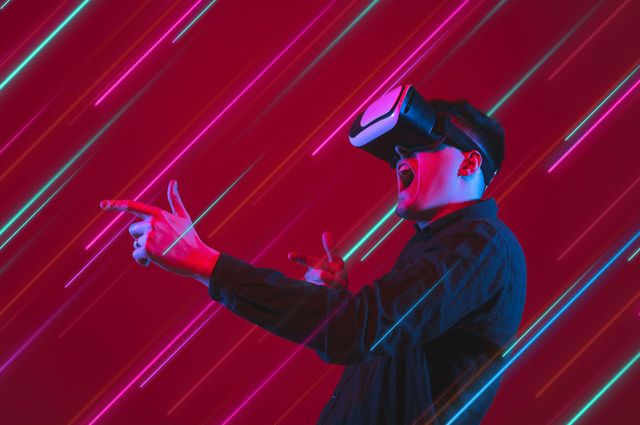What can the hospitality industry expect from metaverse?
10 experts shared their view
The recent announcement of Meta by Facebook along with Microsoft throwing their hat in the ring with Mesh is a clear indication of the virtual immersive experience that is coming to us faster than we anticipated. Maybe The Matrix is not so far in the future. However, even if the metaverse does not live up to the science-fiction dreams, it will become the key to digital experiences and a crucial element of the physical processes. While we can see immediate applicability of this technology in gaming and education, what can the hospitality industry expect from metaverse? In a world that offers "unprecedented interoperability", Avatars could play an increasing role in leisure travel. From bookings and service provisions to selling properties, AR/VR and Avatars may replace physical staff or even manage a front office. If this were possible, the labour challenges within the industry could encourage the adoption of the metaverse faster than we expect. The business travel industry is made up largely by MICE and MICE guests pay 17.5 % more than leisure guests. The metaverse has the capacity to transform MICE into a new age digitally immersive experience.
The question is, can the metaverse bring significant changes, solve some of the pressing issues and become the way forward for the hospitality industry?
Business opportunities: Is the Metaverse the right way to go?
Is the metaverse the perfect universe for misanthropes and germophobes, in other words, people who do not want to meet, mingle with and communicate in person with other people? Or is it a parallel universe enabling people to experience travel to far away destinations from the comfort of their reclining chair?
Let's start by saying that the metaverse is a 30-year old idea that was not invented by Mark Zuckerberg or Facebook. In 1992, science fiction author Neal Stephenson coined the term “metaverse” in his novel Snow Crash, in which he imagined a 3D virtual world where people, represented by avatars, could interact with each other and AI agents.
Different companies will probably create their own versions of the metaverse. Facebook, now renamed to Meta Platforms, and Microsoft have already announced that they are working on their own versions. Google, Apple and other tech giants around the world most probably will join the “metaverse rush.” The hope is that, similar to the Internet, all of these metaverse will be interconnected and you and your avatar can jump from one metaverse to another, similar to how now you can browse from one website to another.
On the surface, the metaverse is the ANTITHESES of travel. Travel is all about indulging your five senses: taste, smell, touch, hearing and sight. At best, the Metaverse can let you experience two of these: hearing and sight.
So how would the metaverse affect travel? One thing the metaverse and travel have in common is that both are social. This social aspect is central to understanding the metaverse, where people are represented by avatars and you can meet and interact with other people's avatars, but also with AI agents, bots and virtual agents. Similar to travel in the real world, your avatar can hang out with other avatars and plan and do things together.
Immersive video games and virtual concerts aside, here are a few metaverse applications I see emerging in travel and hospitality:
- Virtual and Hybrid Events: in place of the flat and boring Zoom meetings we have all attended over the past two years, the metaverse will allow you to attend and experience the industry conference or event in 3D graphics and sound and make make you feel (almost) as if you are present physically. Guest speakers and presenters can appear holographically and create a near real life impression. There is a caveat, of course. Having attended industry events for 30 years now, the main benefits from attending a live event come from personal, unscripted and often random interactions with other participants, not from officially scheduled general sessions, workshops, product presentations and meetings. How would the metaverse handle such interactions with both live and avatar participants remains to be seen.
- Virtual Trips to new and far away destinations: using a virtual reality headset, you can “fly” to a destination without l leaving your couch, immerse yourself in the local life, visit attractions and museums, attend local concerts and sporting events, meet and interact with locals and other visitors, and have fun. Kind of. The caveat is that you experiences will be limited to seeing and hearing, and you will not be able to indulge your other three senses: taste, smell and touch.
- Virtual Business Trips and Sales Meetings: you can have a holographic version of yourself take a virtual business trip, present your case, discuss terms and even sign new contracts. The caveat is whether your 'virtual self” will be able to establish rapport and build trust with your live counterparts. Anybody who has been in sales can vouch for the fact that building rapport and trust, in addition to great products and service, are the main reasons why you win a new client.
In my view, in spite of all the hype, the metaverse will have only marginal applications in travel and hospitality in the near to midterm.


